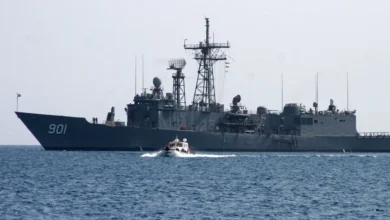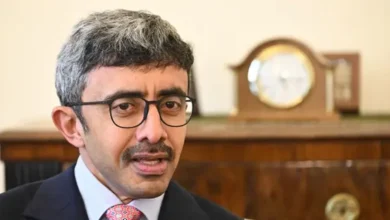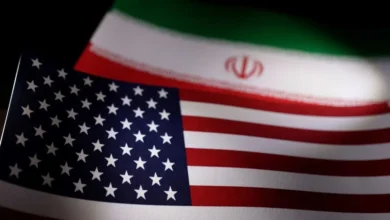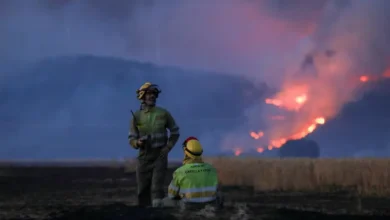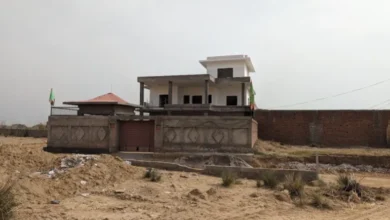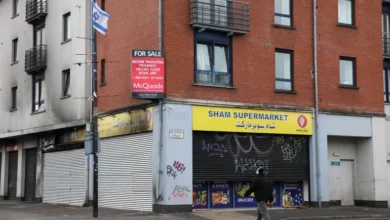Timeline: How the migrant boat tragedy unfolded off Greece
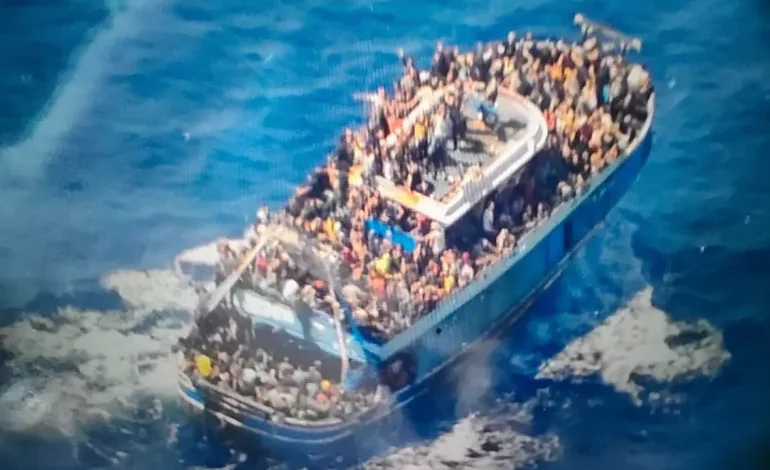
Greek authorities have been accused of failing to rescue hundreds of refugees and migrants onboard a vessel that sunk near the coastal town of Pylos, causing one of the biggest tragedies in the Mediterranean Sea.
Reports suggest as many as 750 people were packed onto the fishing boat that capsized early on Wednesday in deep waters about 80km (50 miles) off the southern Peloponnese peninsula.At least 79 bodies have been recovered and 104 people rescued. Hundreds are still missing.
The Greek coastguard was alerted to the presence of the vessel about 10am (08:00 GMT) on Tuesday. It capsized later that evening.
Exactly what happened in the intervening hours remains unclear.
Alarm Phone, a self-organised hotline for refugees in distress in the Mediterranean Sea, says the boat had reported being in trouble, but Greek authorities say it repeatedly refused offers of help.
9:53am (07:53 GMT): Activist Nawal Soufi, based in Italy, alerts Alarm Phone of a large boat in distress carrying 750 people. Over the following hours, Soufi sends additional information, including the GPS position of the vessel. She says authorities in Italy, Greece and Malta were alerted. The Greek coastguard says it was notified of the boat’s presence late on Tuesday morning.
2:17pm (12:17 GMT): Alarm Phone receives the first call from the boat. Its passengers say they are in distress and “cannot survive the night”. The call drops before the GPS coordinates can be confirmed.
4:13pm (14:13 GMT): After a number of failed attempts at communicating with the boat, Alarm Phone receives the coordinates.
4:53pm (14:53 GMT): The organisation alerts the Greek authorities via email as well as other actors, including the EU border agency, Frontex, and UN refugee agency in Greece.
5:20pm (15:20 GMT): The passengers call Alarm Phone saying the boat is not moving and the captain fled on a smaller boat. They add that they need food and water.
6:30pm (16:30 GMT): The Greek coastguard says it observed the boat by helicopter and it was “sailing on a steady course”.
Later, Greek search and rescue officials say they reached someone on the boat by satellite phone who repeatedly says that passengers need food and water but want to continue to Italy.
Aerial photos of the vessel taken by the Greek coastguard hours before the tragedy unfolded shows a vessel crammed with people on its exposed decks. Some had their hands outstretched.
Greek officials say they were faced with a dilemma on what to do with a vessel that had repeatedly declined offers of assistance as they worried that even the slightest shift could unbalance the boat.
8:05pm (18:05 GMT): Alarm Phone is informed by the passengers that they received water from the merchant vessel Lucky Sailor and they have been in contact with the police. Alarm Phone also notices that a second merchant vessel, the Faithful Warrior, is close to the boat.
12:46am Wednesday (22:46 GMT): Alarm Phone reports its last contact with the boat in distress. All it hears is: “Hello, my friend. … The ship you send is …” The call cuts off.The Greek coastguard says merchant ships delivered supplies and observed the vessel until the morning when the satellite phone user reports a problem with the engine.
About 40 minutes later, according to the coastguard statement, the vessel began to rock violently and sank.
The Greek coastguard says the boat’s engine stopped working shortly before 1am on Wednesday (23:00 GMT Tuesday) and the vessel later capsized, sinking in about 10 to 15 minutes.Who says what?
Coastguard experts believe the boat may have run out of fuel or experienced engine trouble and the movement of passengers caused it to list and capsize.
They suggest the boat might have capsized earlier had they attempted to intervene.But Greece’s leftist former Prime Minister Alexis Tsipras says the passengers had “called for help”.
“What sort of protocol does not call for the rescue … of an overloaded boat about to sink?” he asked.
Soufi says in a reconstruction posted on Facebook that the Greek coastguard had been towing the ship before it capsized.
According to messages between Soufi and the passengers, the Greek coastguard tied a rope to the fishing vessel.
Greek parliamentarian Kriton Arsenis, who spoke to some survivors in Kalamata, confirms the account and accuses the coastguard of trying to move the boat into Italian waters.

